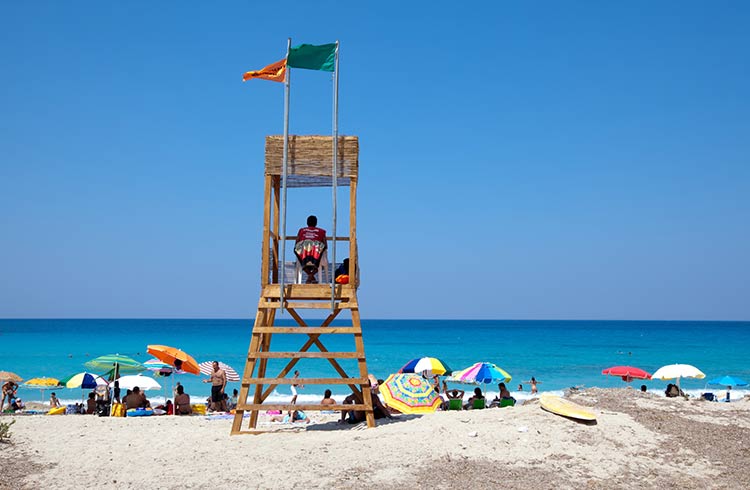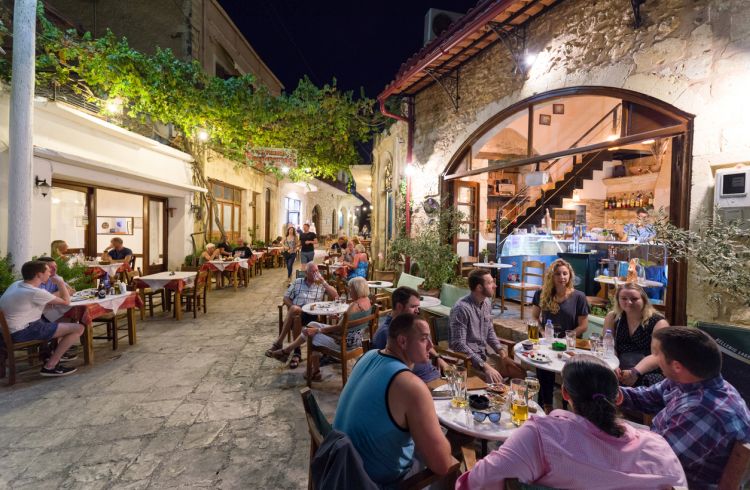How to Stay Healthy in Greece: Travel Tips
Required vaccinations, standards of medical facilities, mosquitoes and scorpions – these are some of the health risks to be aware of before you go to Greece.
 Photo © iStock/vasiliki
Photo © iStock/vasiliki
You’d have to be pretty unlucky to get stung by a scorpion while traveling in Greece, but it pays to be prepared. You can get stung, bitten, burnt, squished, smashed, and all but asphyxiated in Greece, by mosquitoes, scorpions, the sun, scooters, the sea and Athens' often terrible pollution.
Here's what to look out for on your trip to Greece.
Vaccinations for Greece
There are no required vaccinations for travel to Greece but as with most destinations, make sure your routine vaccinations are up to date.
Medical treatment in Greece
As with most countries, the standard of medical facilities can vary depending on where you are traveling. In Greece, public hospitals are underfunded, putting a strain on nursing services and resources, which means they can be crowded and sometimes there is a poor standard of hygiene. However, in the major cities care tends to be of a high standard and you are likely to encounter English-speaking staff.
Private medical facilities are available but are expensive and payment is usually required upfront. The emergency number in Greece is 112, and operators will speak English, Greek, and French. If you need an ambulance, it's best to use private medical facilities or take a taxi as response times for the public ambulance service have been reported to be lengthy and unreliable.
Pharmacies tend to be good quality in terms of service, information
Mosquitoes and scorpions
Serious mosquito-borne illness is rare in Greece, but take some insect repellant for your comfort.
There are scorpions throughout Greece, including Athens. The greatest danger is from accidentally turning over a rock and stepping on one, but they also come inside buildings. Always check your shoes and clothing before wearing, shake out bags, and keep them
Generally, scorpion stings are only life-threatening for those who are highly allergic.
If you are stung by a scorpion:
- Don't panic.
- Wash the area gently with soap and water.
- Put a cold compress (ice in a cloth) on the wound.
- If you feel tingling in the extremities or get blurry vision or rapid eye movement, or hyperactivity, go to a hospital regardless. There's no way of gauging the severity of the sting, or your reaction to it. Seek medical help, just in case.
Sun safety in Greece
Greece gets hot in summer. Athens holds the record for the hottest temperature recorded in Europe – a stifling 118 F (48 C). If you're from somewhere with a little less sunshine, you could get sunburnt very easily.
Put on sunscreen 15 minutes before venturing outside, and re-apply every couple of hours (more often if you're swimming). Wear a hat, and drink plenty of water (sorry, ouzo doesn't count) to prevent dehydration. If possible, try to avoid activities during the hottest part of the day between
The hot temperatures and lack of rain make Greece susceptible to wildfires which can move quickly. If one breaks out in your area get some information on what danger it may pose – ask the locals or drop into the police station.
A couple of handy tips to know about fire behavior:
- Wildfire follows the wind direction, so if you smell smoke it could be coming in your direction.
- Fire burns uphill regardless of wind direction, if there's a blaze in a valley below you, pay close attention to the fire's movement.
If you fear the fire could come your way, leave as early as possible.
Have you had any nasty encounters?
Had an encounter with something nasty and bitey in Greece? We'd love to hear about it, leave your comment below.
Before you buy a travel insurance policy, check your government travel warnings and health advice – there may be no travel insurance cover for locations with a government travel ban or health advice against travel.
Related articles
Simple and flexible travel insurance
You can buy at home or while traveling, and claim online from anywhere in the world. With 150+ adventure activities covered and 24/7 emergency assistance.
Get a quote

No Comments